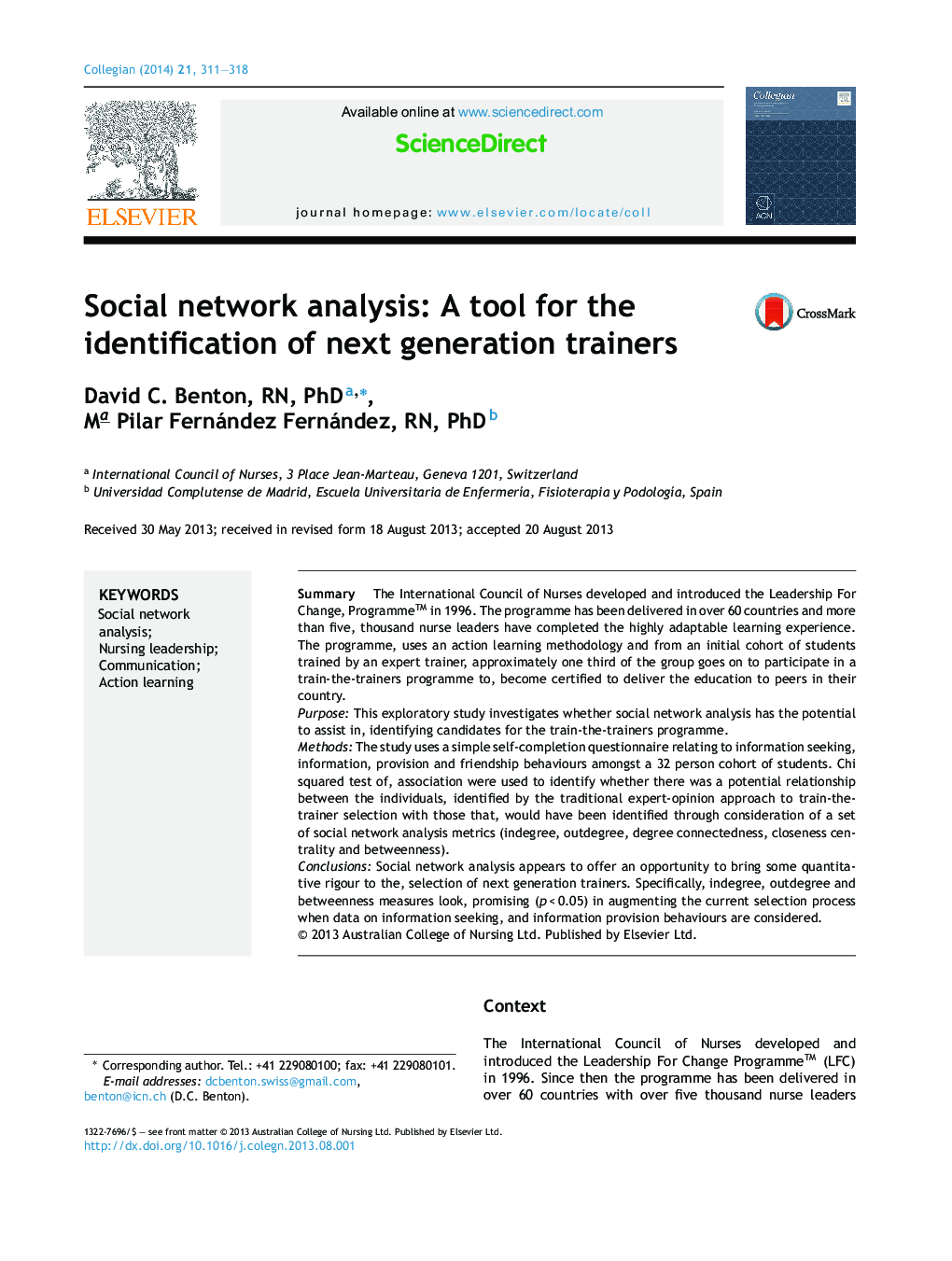| Article ID | Journal | Published Year | Pages | File Type |
|---|---|---|---|---|
| 2646818 | Collegian | 2014 | 8 Pages |
SummaryThe International Council of Nurses developed and introduced the Leadership For Change, Programme™ in 1996. The programme has been delivered in over 60 countries and more than five, thousand nurse leaders have completed the highly adaptable learning experience. The programme, uses an action learning methodology and from an initial cohort of students trained by an expert trainer, approximately one third of the group goes on to participate in a train-the-trainers programme to, become certified to deliver the education to peers in their country.PurposeThis exploratory study investigates whether social network analysis has the potential to assist in, identifying candidates for the train-the-trainers programme.MethodsThe study uses a simple self-completion questionnaire relating to information seeking, information, provision and friendship behaviours amongst a 32 person cohort of students. Chi squared test of, association were used to identify whether there was a potential relationship between the individuals, identified by the traditional expert-opinion approach to train-the-trainer selection with those that, would have been identified through consideration of a set of social network analysis metrics (indegree, outdegree, degree connectedness, closeness centrality and betweenness).ConclusionsSocial network analysis appears to offer an opportunity to bring some quantitative rigour to the, selection of next generation trainers. Specifically, indegree, outdegree and betweenness measures look, promising (p < 0.05) in augmenting the current selection process when data on information seeking, and information provision behaviours are considered.
